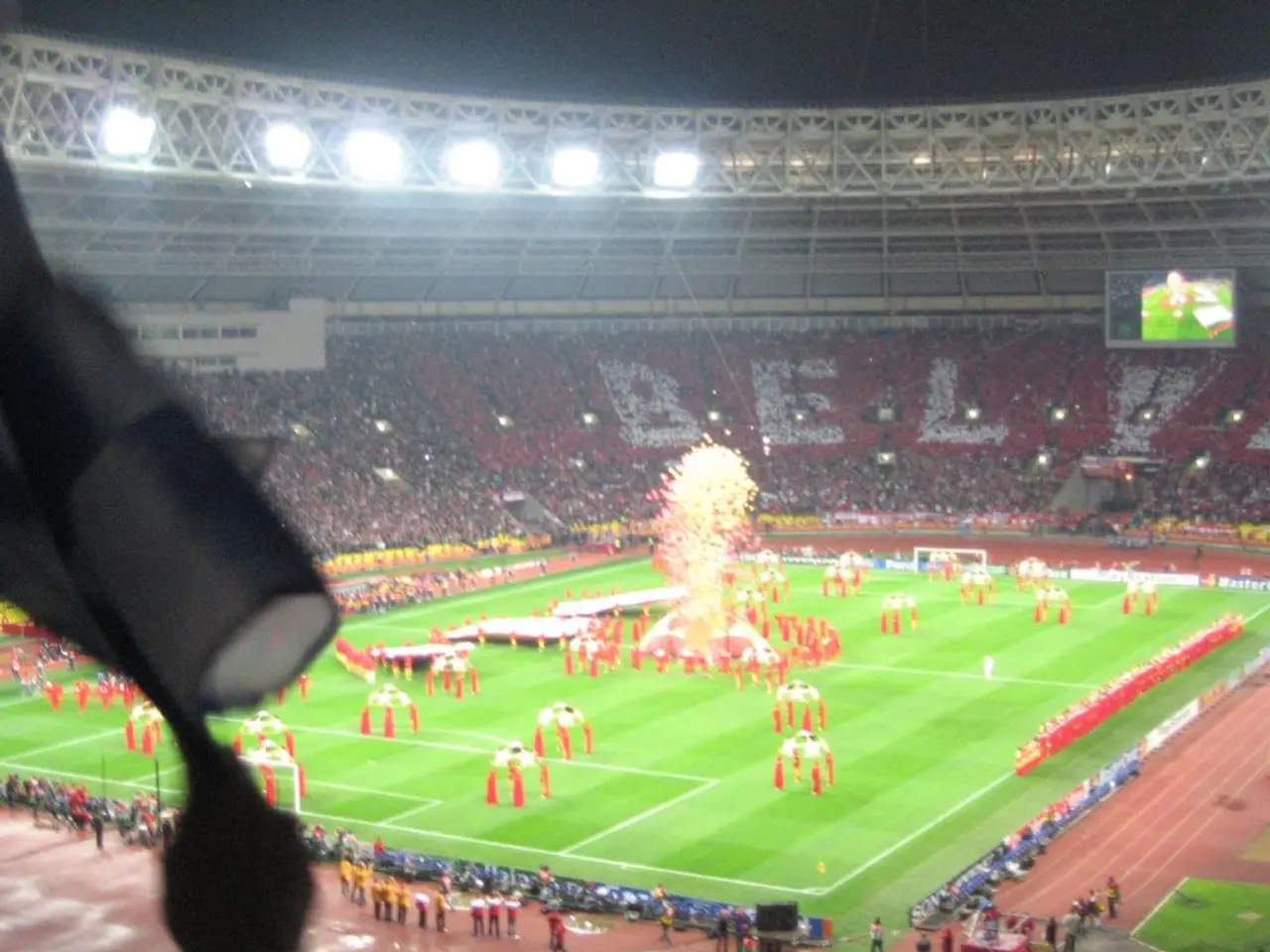"Opposition to Munich's Olympic bid due to potential catastrophe"
In the heart of Bavaria, the city of Munich is contemplating a return to the global stage, considering applications for the 2036, 2040, or 2044 Olympics. However, concerns about potential cost overruns and opposition to hosting another Olympics in Munich are growing amongst city officials and citizens alike.
The fears revolve around the enormous financial risks and legacy burdens associated with the Games. Historically, Olympic host cities have faced significant cost overruns, sometimes by hundreds of percent, causing long-term debt and infrastructure maintenance issues. For instance, Montreal’s 1976 Summer Olympics incurred a cost overrun of 796% and took the city 30 years to pay off the debt, with ongoing expenses to maintain aging facilities[1]. Similarly, the 2014 Sochi Winter Games exceeded budgets dramatically, with overruns estimated between $39 billion and $58 billion above the initial $12 billion plan[1].
Specific to Munich, opposition is likely informed by these historical precedents. The concerns include massive and unpredictable cost overruns that could strain public budgets, long-term maintenance and repair costs for Olympic venues long after the games end, and potential economic disruption, with questions arising whether the anticipated tourism and urban renewal benefits justify the risk.
Opponents, including Stefan Jagel (The Left), Ludwig Hartmann (Greens), Tobias Ruff (ÖDP), and Christine Markgraf (BUND Nature Conservation), have mobilized under the alliance "For Munich against the Olympics." Hartmann finds the "bidding circus" for the Olympics too expensive, and Ruff argues that Munich cannot afford the Olympics with its current budget, fearing that taxpayers would have to cover any losses if the Olympics were held.
The alliance does not want a second Olympics in Munich and plans to campaign for a "no" vote in the upcoming referendum on October 26, with information stands and 2000 posters. They point to Paris as an example of increased prices and expensive rents after hosting the Olympics.
However, proponents of hosting another Olympics in Munich argue that the potential for modern, sustainable Games with improved budgeting and use of existing infrastructure can mitigate past financial pitfalls. They also highlight the significant international exposure, boost in tourism, and stimulation of investments in urban development and transportation that hosting can provide. Advances in security planning and federal partnerships (as seen for the 2028 LA Olympics) can help ensure smooth, secure events minimizing surprises[2].
In conclusion, while cost concerns and opposition are substantial and backed by historic evidence of overwhelming financial risks[1], proponents emphasize progress in Olympic governance, sustainability, and the socio-economic opportunities for host cities if managed well[2]. The debate continues over whether these improvements are sufficient to offset the challenges Munich or any city would face in hosting again.
One key issue to be addressed is the development of the Olympic Village site in Daglfing, and concerns about rents skyrocketing due to hosting another Olympics in Munich. The expansion of the U-Bahn and S-Bahn network in Munich, due to time pressure, could result in "sloppy work, high costs, and a high burden," according to Hartmann.
As the decision approaches, the city of Munich finds itself at a crossroads, weighing the potential benefits against the significant risks associated with hosting another Olympics.
[1] Cost overruns in Olympic host cities: https://www.bbc.com/sport/olympics/43004085 [2] Advances in Olympic governance, sustainability, and socio-economic opportunities: https://www.olympic.org/news/sustainability-and-the-olympic-movement
- The ongoing discussion in Munich regarding potential bids for the Olympics is heavily influenced by general news about policy-and-legislation and politics, as city officials and residents consider the financial risks and legacy burdens associated with hosting the Games.
- The concerns surrounding the potential Olympic bid by Munich for the 2036, 2040, or 2044 Games are not limited to the city, as they extend to sports news, with opponents citing instances of enormous cost overruns and long-term debt in past Olympic host cities, such as Montreal and Sochi.






